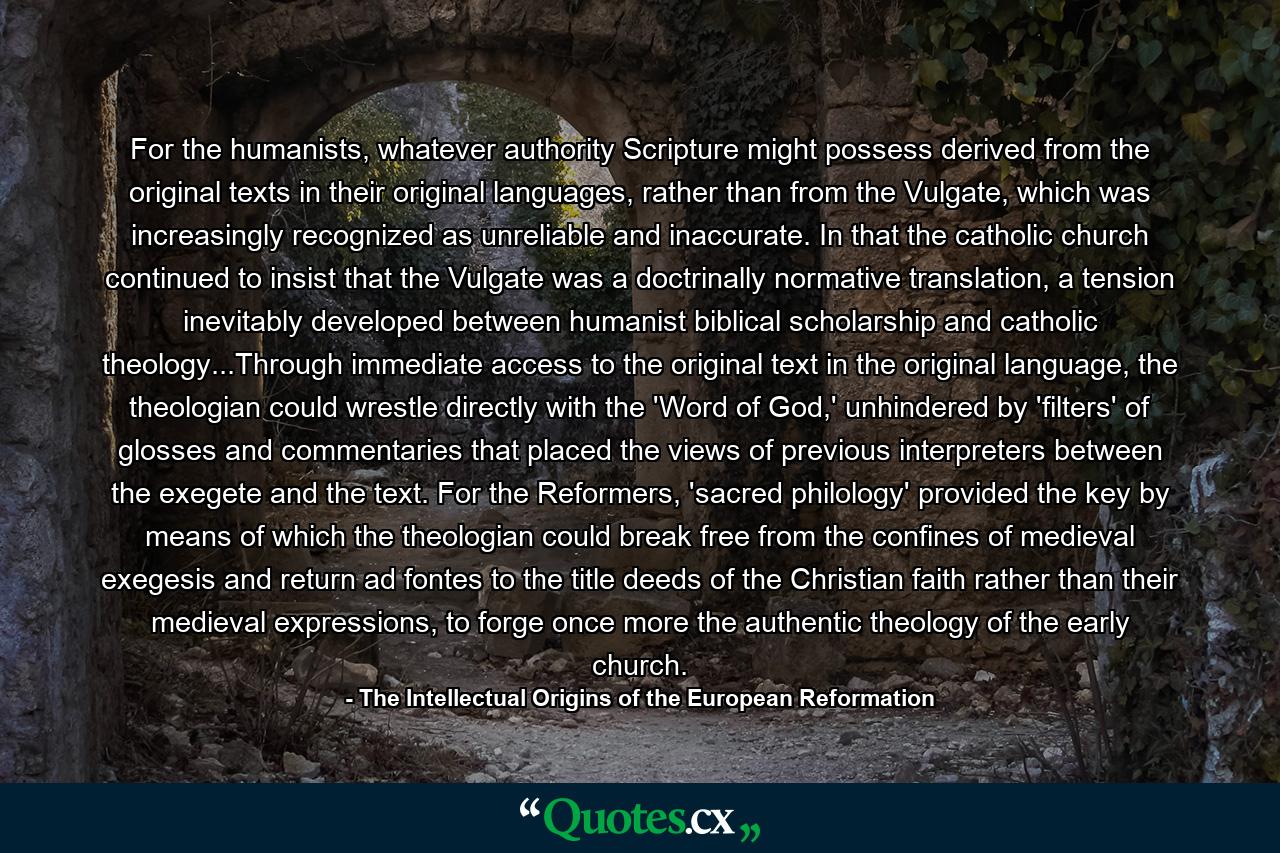For the humanists, whatever authority Scripture might possess derived from the original texts in their original languages, rather than from the Vulgate, which was increasingly recognized as unreliable and inaccurate. In that the catholic church continued to insist that the Vulgate was a doctrinally normative translation, a tension inevitably developed between humanist biblical scholarship and catholic theology…Through immediate access to the original text in the original language, the theologian could wrestle directly with the ‘Word of God,’ unhindered by ‘filters’ of glosses and commentaries that placed the views of previous interpreters between the exegete and the text. For the Reformers, ‘sacred philology’ provided the key by means of which the theologian could break free from the confines of medieval exegesis and return ad fontes to the title deeds of the Christian faith rather than their medieval expressions, to forge once more the authentic theology of the early church.
